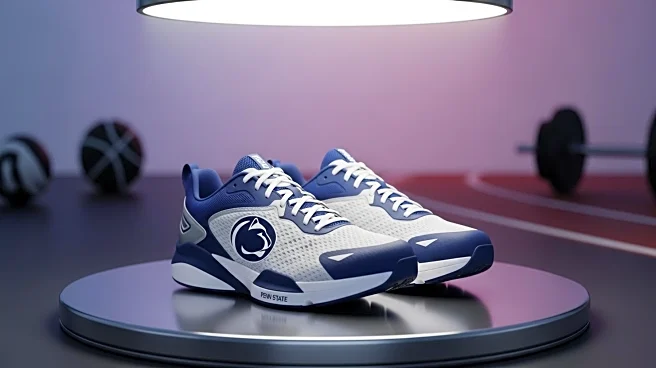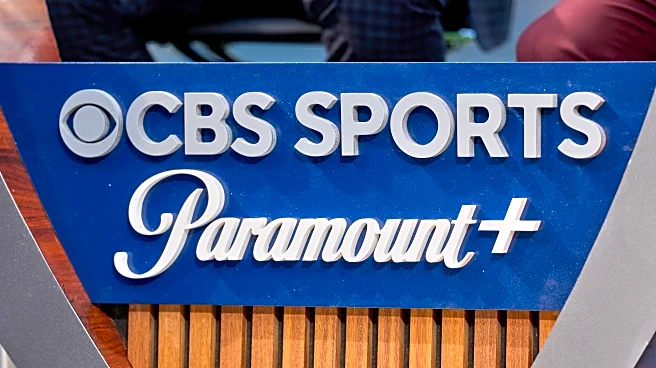What's Happening?
Penn State University has announced a significant shift in its athletic department apparel partnership, moving from Nike to Adidas starting July 1, 2026. This transition marks the end of a relationship with Nike that began in 1993. The new 10-year agreement with Adidas is described as the company's largest college deal, promising substantial investment in Penn State Athletics. The partnership aims to enhance the university's athletic programs through innovative technology, marketing opportunities, and support for student-athletes' personal brand development. Notable former Penn State athletes, Micah Parsons and Abdul Carter, have individual deals with Adidas, highlighting the brand's influence in professional sports.
Why It's Important?
The switch from Nike to Adidas represents a major shift in collegiate sports apparel partnerships, potentially influencing other universities' decisions in the future. Adidas' commitment to Penn State includes groundbreaking NIL (Name, Image, Likeness) opportunities, which could set new standards for athlete endorsements and marketing strategies. This deal may enhance Penn State's competitiveness in recruiting top-tier athletes by offering unique branding and technological advantages. The move also reflects Adidas' growing presence in college athletics, as evidenced by similar agreements with other universities like Tennessee.
What's Next?
As Penn State transitions to Adidas, the university will likely focus on integrating the new apparel and technology into its athletic programs. This may involve strategic marketing campaigns to promote the partnership and attract new recruits. Other universities may observe Penn State's success with Adidas and consider similar shifts in their apparel partnerships. The impact on Nike's dominance in college sports apparel could lead to increased competition among major brands, potentially resulting in more lucrative deals for universities.
Beyond the Headlines
The partnership with Adidas could influence broader trends in collegiate sports, particularly in how universities leverage apparel deals for financial and branding benefits. Ethical considerations may arise regarding the commercialization of student-athletes' identities and the balance between educational values and commercial interests. Long-term, this shift could contribute to evolving dynamics in college sports, where apparel partnerships play a crucial role in shaping athletic programs' identities and financial health.











